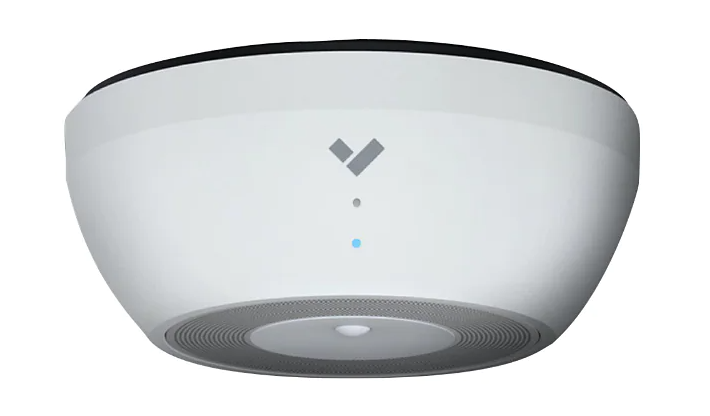Vape detectors installed on campus
Rising e-cigarette use leads to sensors in high school bathrooms
A Verkada vape sensor like the one installed at Days Creek is pictured. The sensors cost between $600 and $1,400.
November 21, 2022
Early this month, nondescript sensors were installed in each high school bathroom. Slightly larger than a smoke detector and mounted on the ceiling, the sensors are marked with a “V.”
They came quietly, but their effect was immediate. The sensors’ target? Vaping.
Days Creek Charter School is just the latest school to add vape sensors to its campus, reflecting growing use among teens.
Vaping devices also known as e-cigarettes, vape pens and juuls among other terms come in many different shapes and sizes but no matter how they look they all do the equivalent amount of damage. Vaping exposes your lungs to a variety of different toxic chemicals that can potentially cause various lung diseases. While all vaping devices can look different they are all powered the same.
They are battery powered devices that heat up the liquid in the cartridge every time you take a puff. Therefore every time you take a puff it heats up the liquid turning it into a vapor you inhale. Due to the nicotine in vaping devices it can be highly addictive and people rely on it through stress such as school.
As we all know vaping has been an ongoing problem in schools throughout the country. Nicotine can harm the parts of the brain that control attention, mood, learning and impulse control.
It especially affects younger people because the brain cells are stronger when you are younger than as if you are an adult. Therefore if someone is going through school it can trigger stress and suffer from withdrawals.
“I think installing them was a good idea considering that it’s an illegal substance that you are not supposed to have,” said science teacher Ryan Flerlage. “You have to be what 21 to even have it on your person. It’s against the law and this being a public institution it’s perfectly fine. It’s not like it’s a camera. All it does is detect the carcinogens in the air.”
A vape sensor costs around $1,400. Some can run for around $600. Others are $15,600.
Whenever a carcinogen is detected, the sensors alert a school administrator, who can then monitor who entered and is exiting the bathroom.
“I think it’s a good idea because maybe it will help kids change their lifestyles at home and at school,” junior Gracie Stone said.
Many schools around the country that are installing sensors acknowledge that they won’t stop teen vaping, but that they at least want to make all students feel comfortable in restrooms.
“If they know the vape sensors are there, maybe they might think ‘I might get caught and have the police down here. Maybe I won’t vape in the bathroom,” junior Kate Clifton said. “Maybe that will just spark something in their minds that inhaling toxic metals into their lungs is bad for them.”
